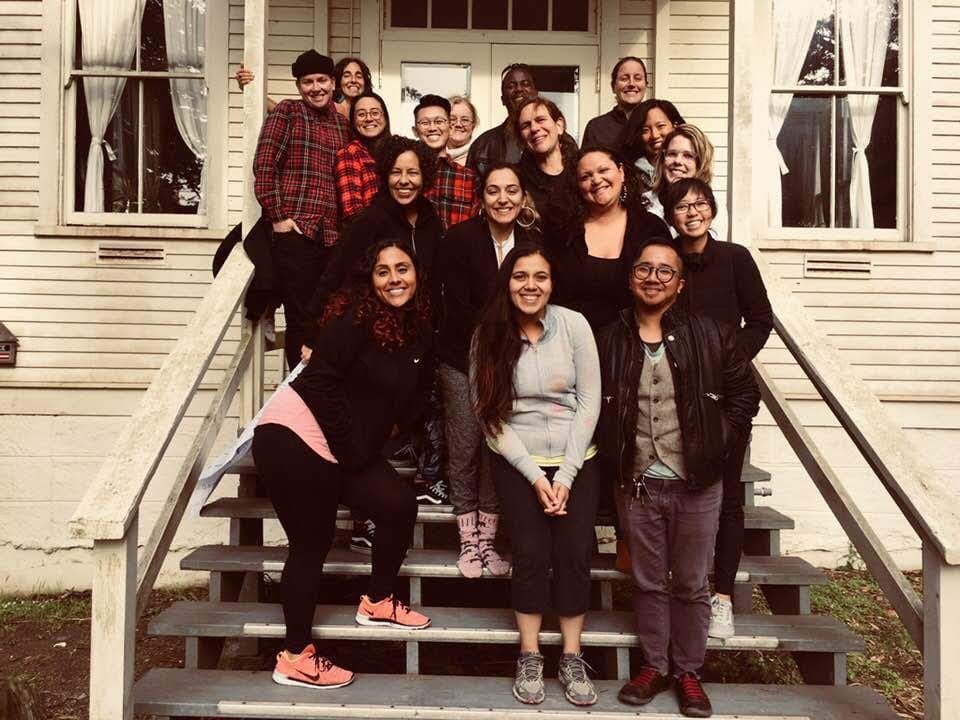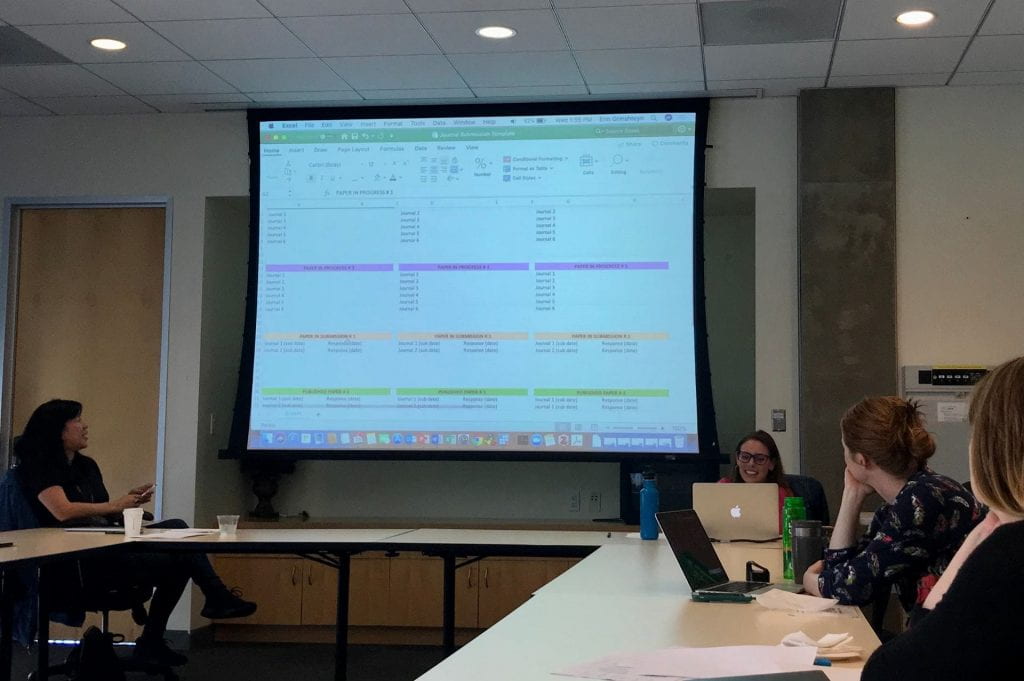Farima Pour-Khorshid, assistant professor of Teacher Education, writes about Bay Area social justice movements in education and their impact as a researcher and educator.

Over the past seven years, I’ve felt honored to organize with the Teachers 4 Social Justice (T4SJ) in San Francisco. I initially heard about the T4SJ annual conference back in October of 2012 during a time that I was desperately searching for intellectual and emotional support in my practice. To give some context, I had just returned abruptly to California after living and teaching in Nicaragua for two years because my brother, Mazyar Pour-Khorshid Jr., died unexpectedly just after his twenty-fifth birthday. I was struggling with my mental health, and the pain of that tragedy felt all-encompassing. Yet, despite my grief, I started a PhD program and also returned to teach part-time in my Bay Area community two months later. I figured that the busier I was, the less time I had for depression. That year I remember crying regularly in my classroom during recesses, lunch breaks, and after school. The reality was that my teacher education program did not equip me with knowledge or resources to know how to cope through personal and second-hand trauma as a teacher and I felt overwhelmed.
Beyond my personal struggles, I was constantly reminded of my unhealed trauma from my K-12 schooling experiences within the same district that I was teaching in. I felt triggered each time I witnessed students of color being either spoken about or treated in dehumanizing ways. Mandatory district sponsored teacher professional development and school collaboration meetings added layers of frustration to my experience because I began to realize how my professional learning maintained white supremacy. I began to feel like I was part of the problem, because after all, I was an actor within a system that was fundamentally toxic and inequitable in its very design.
I attended the T4SJ annual conference in October of 2012 after having a conversation with a community-based educator at my school. I left the conference feeling so inspired by all of the teachers and organizers that I met, the radical workshop topics, social justice resources and by the collectivism that permeated every conversation and space I was part of throughout the day. I decided to sign up for a monthly drop-in meeting the following month. I attended and felt rejuvenated by the level of commitment that these educators demonstrated after a long school day as they learned about and critically analyzed a range of problematic issues within education. In so doing, they revealed an impressive depth of knowledge that I had been hungry for since I entered the profession.
My involvement within the organization allowed me to conceptualize my research as meaningfully embedded in my practice and in solidarity with other educators in the field. T4SJ shifted my purpose in my practice as a public school educator, my trajectory as a doctoral student, and my activism as a grassroots organizer. For example, the more I reflected on some of my own racialized and gendered traumatic experiences, the more I began to think about what healing could look like within our organization and across education spaces. I wondered about how T4SJ could offer support, and I proposed creating a racial affinity group within the organization, especially because I yearned for that kind of space in order to sustain myself in the field. Two other T4SJ comrades of color, Karen Zapata and Chela Delgado, joined me in this endeavor and led us to cultivate a sacred space named H.E.L.L.A., a racial affinity group to support critical educators of Color. Being that we are situated within the Bay Area, centering the word hella was an important identity signifier and served as our acronym for our group’s political and pedagogical commitments to healing, empowerment, love, liberation and action (H.E.L.L.A.). Our approach has been rooted in healing centered engagement, which was influenced by the work I was doing with my mentor, Dr. Shawn Ginwright and the Flourish Agenda team. Our approach to collective healing is grounded in the power of our counternarrives as we’ve engaged deeply in Testimonio as Radical Story-Telling and Creative Resistance for sustainability in our work.
My involvement and leadership within T4SJ over time led to my involvement in other grassroots activist collectives like the Bay Area chapter of the People’s Education Movement which our very own Dr. Patrick Camangian cofounded. I also became a board member within the national Education for Liberation Network, which organizes Free Minds Free People, a grassroots national conference that brings together teachers, young people, researchers, parents and community-based activists/educators from across the country to build a movement to develop and promote education as a tool for liberation. Collectively, we see activism as a shared struggle for human being which is essentially the “struggle for the inalienable right of all people to human be—to be liberated from any project of violence that treats persons as property, persons as things, persons as disposable, or persons as in any other way less than fully human” (p. 247). This struggle is also connected to building movements to end the prison industrial complex in our schools, the movement for ethnic studies, healing justice and more.
All of the justice-oriented liberatory education collectives that I have been part of have supported and matured my politic of radical teacher learning and support. My scholarship is deeply rooted in and emergent from these relationships with educators and activists as we collectively navigate structural violence in and out of educational spaces. I think it is critical for educators and educational researchers, spanning any level of their career, to be involved in liberatory education organizations. We are teaching, organizing and researching through an apolitical, color evasive, neoliberal education climate which has negative implications on our socialization, pedagogy and sustainability in the field.
We cannot afford to ascribe to the dominant culture, and our integrity lies in the ways we push back against white supremacist ideologies embedded in everyday school policies, practices and interactions. This work cannot be done in isolation, coalitional resistance is and will continue to be our lifeline. However, there is a deep level of humility that must undergird our solidarity, which mustn’t be confused with charity or saviorism, because in the powerful words of Indigenous Australian activist and educator, Lilla Watson, “If you have come here to help me you are wasting your time, but if you have come because your liberation is bound up with mine, then let us work together.”
As we continue to engage in the labor of love of teaching, organizing and researching for social justice, let us not neglect the spiritual and emotional aspects of our lived experiences. Our mental health matters, especially in the face of structural violence and oppression. Collective healing is such an important form of activism that our world is in desperate need of and creating healing spaces is critical for our wellbeing and sustainability in our struggle for liberation because, in the words of Audre Lorde, “Caring for myself is not self-indulgence, it is self-preservation, and that is an act of political warfare”.
